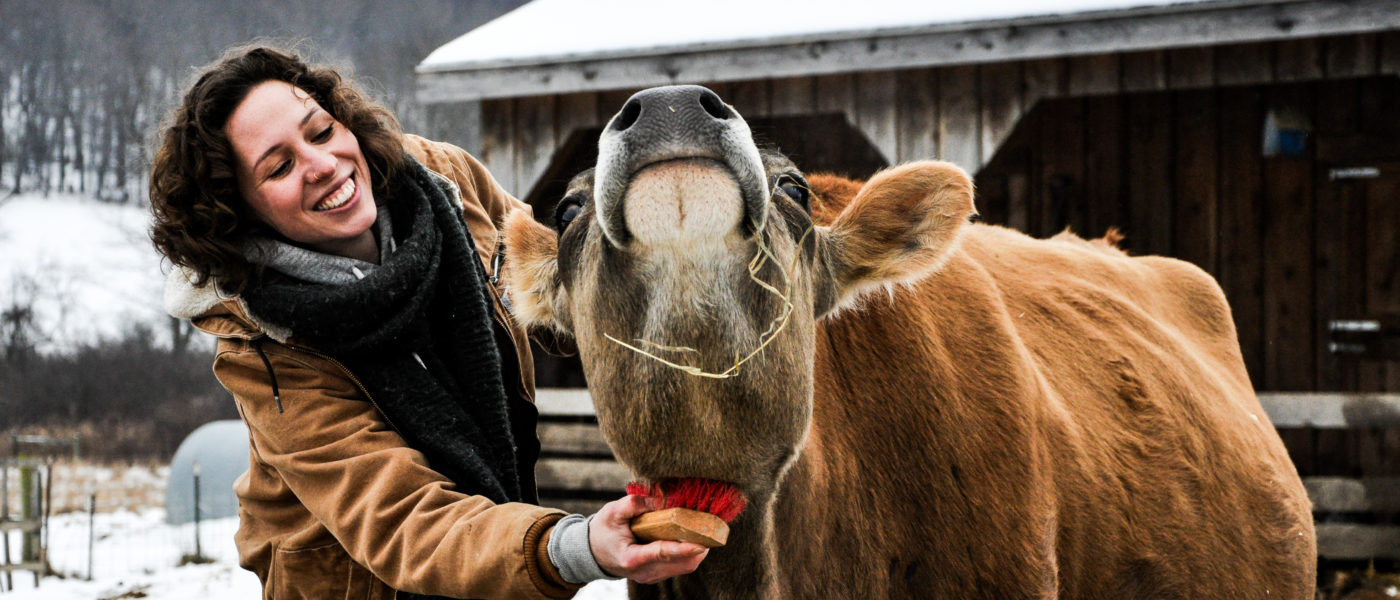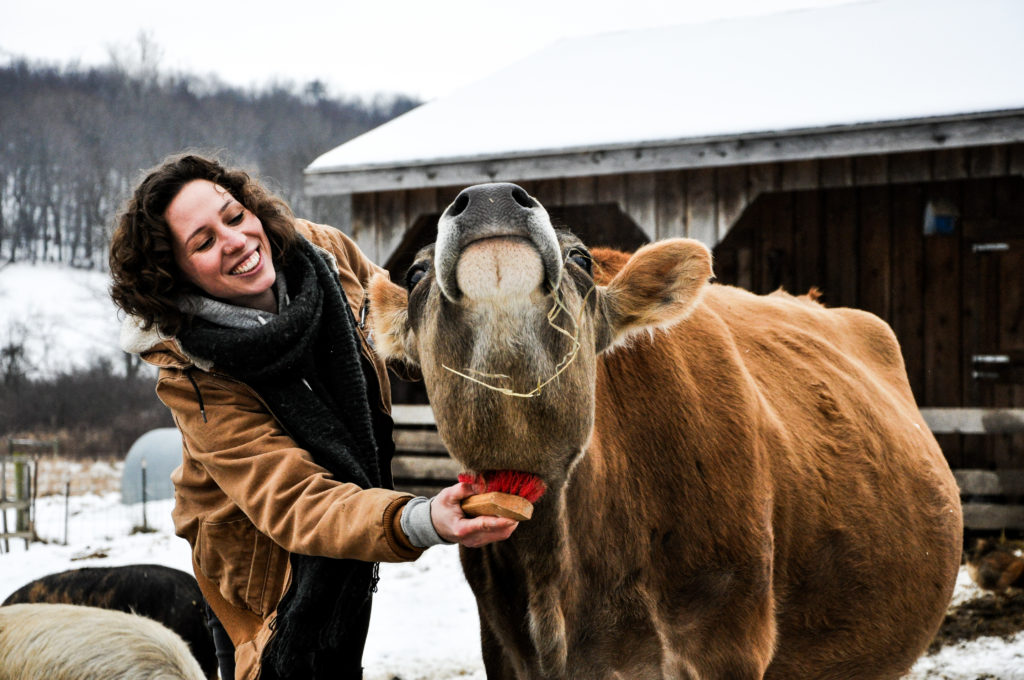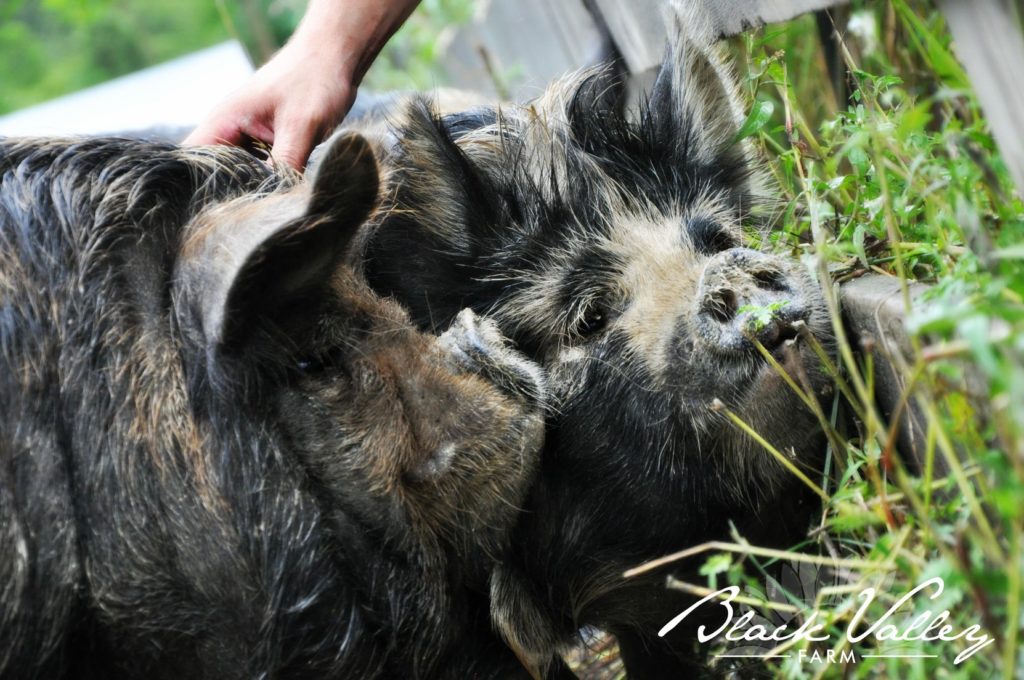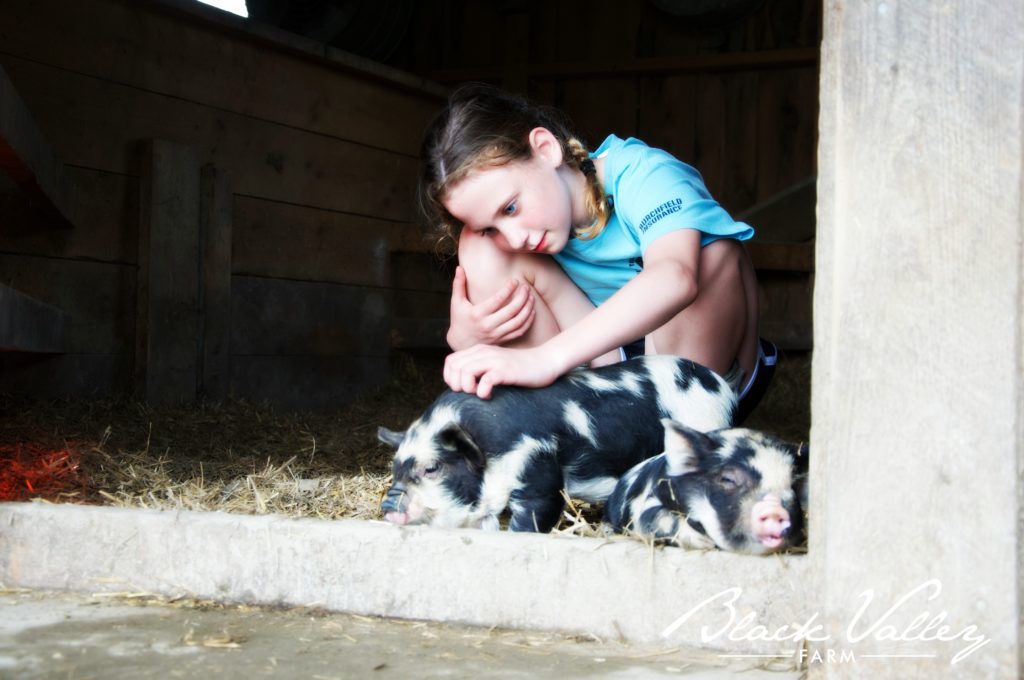At Black Valley Farm in Everett, Pennsylvania, about midway between Philadelphia and Pittsburgh, Alana Foor raises Kunekune pigs, a heritage breed whose name means fat and round in Maori. Though the six acres she farms is family land, obtained through a land grant from William Penn, the founder of Pennsylvania, farming was not pre-destined for Alana. It’s a career and lifestyle entirely of her making, one that is central to her sense of self.
“I grew up in a conservative Christian family where women don’t go to college. Women stay low-profile—their role is as wife and mother. I was married at 19 and had two sons when I started the farm in 2009; I was searching for my identity.”
The family land had been whittled down from 700 acres to the six acres that Alana farms today, enough to make a go with a small livestock breed. Alana did her research and found the perfect fit. Kunekune pigs thrive on pasture and forage; able to be raised on small acreage, they have a disinclination to roam, innate mothering instincts and a docile nature. Their meat, with a sweet taste and generous marbling, is sought after by chefs and passionate cooks. “I did the pigs for me,” Alana explains. “And because they are a small breed, this was something I could do independently as a woman.” But in 2009, when she was starting out in her small community, Alana found there wasn’t yet a market for direct farm sales. Relying on a strength that has been a key ingredient of her farm success, Alana adapted and altered her focus.
The breeding of Kunekune pigs was in high demand. She raised and sold breeding stock to other cottage farmers, as she calls herself, and to farms learning about the unique breed. Today Alana has one of the largest Kunekune herds in the nation, with twenty bloodlines and 80 head of permanent stock that produce 100-200 piglets a year, which go to farms across the United States. As her breeding operation grew, she explains, “People started to wake up to where their food is coming from,” allowing her to expand her farm operation to include pastured poultry and produce. But selling locally is still a challenge in her region. “Farmers markets can be really hard for farmers. I wanted the exposure and the connection that markets bring, but it’s such a sacrifice to go. You give up your weekends and who takes care of the farm while you’re away all day?” An additional challenge in mid-Pennsylvania is that many of the markets are not producer-only, meaning market vendors can sell products that they purchase from other farms and even wholesale produce markets. These vendors often drive down farmers market prices, hurting other farmers at the market trying to earn a fair price for the fruits of their hard labor.
In the spirit of adaptability, this challenge presented Alana with an opportunity that will come to fruition in March, after years of delay due to the COVID pandemic, when she opens Black Valley Provender, a local grocery/butcher shop/café at 10 East Main Street in Everett. Alana’s goal isn’t just to sell her own products, but also to strengthen the farms around her and build community. When we spoke with Alana a month before Black Valley Provender’s planned opening, the store was already committed to carrying the products of 20 local farms, and just that day, three additional farms had reached out on social media to learn more about the market. “That issue of driving down the price paid to farmers? We won’t be doing that. We can find other places to cut cost,” she explains. “I know what it takes to produce that product. My goal is to promote the farmer behind the product. And our customers can know they are supporting these faces… people in their own community.”
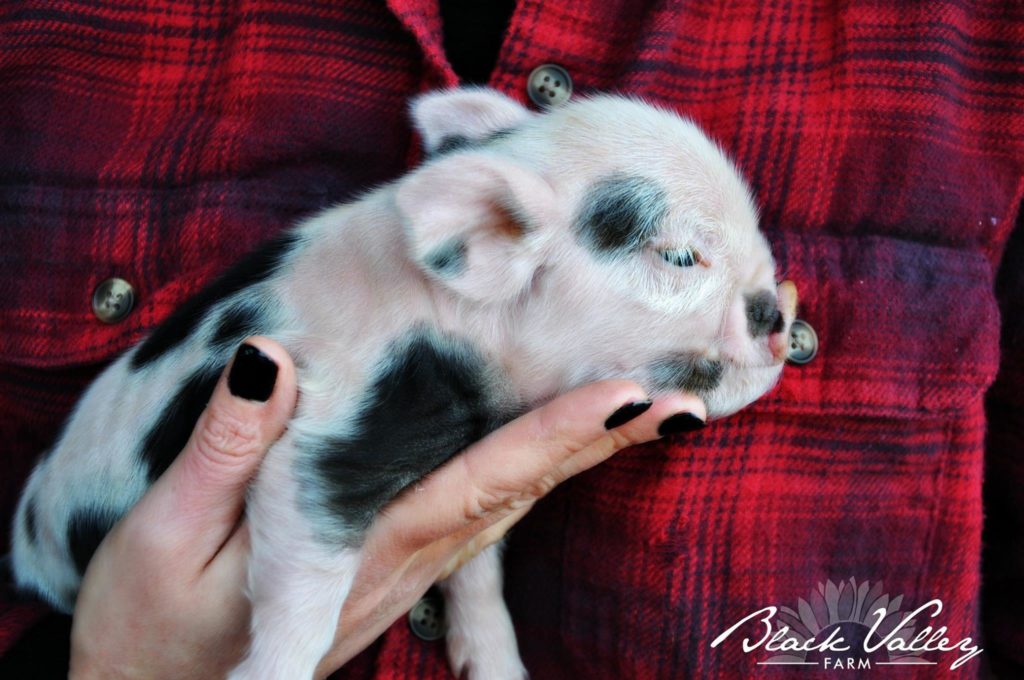
Alana is inspired by the farmers around her, and she sees Black Valley Provender as a support for their work. “All over this valley are people who love farming; it’s been passed down to them. They farm. That’s what they do; they don’t have time or desire to also do all the marketing and advertising,” she says. “One of my favorite farmers runs a raw milk dairy. She’s the coolest, and that family tradition will end with her because her kids don’t want to farm. She has worked a full-time job to support her farming. I’m excited to service these kinds of farms. They are the beautiful side of agriculture.”
“I’ve proven to myself that I don’t need to take out loans and buy a lot of equipment to succeed. I don’t have to get too big.”
Black Valley Farm has carried Alana through her own challenges. “Five years ago, my husband of fourteen years decided he had other plans in life. Since then, these six acres have enabled me to recover my finances from the brink of bankruptcy and build a business. I love the fact that I was able to take something that everyone said I was crazy for doing and take care of my family.” Education and sharing the beauty of farming is a focus of Alana’s work. She runs workshops on the farm, covering topics like raising pastured pork, farrowing 101 and husbandry 101. “Many people find out about Kunekune pigs because they’re looking for a way to make small agribusiness possible. It feels good to share my story of how I’ve done that on my farm and give hope to others that they can do it too,” she shares. “My grandfather had 700 acres, and he had seven children, all of whom went to college and got an inheritance from those acres. On just the remaining six acres of that farm, I’ve proven to myself that I don’t need to take out loans and buy a lot of equipment to succeed. I don’t have to get too big.”
This focus on education and sharing the experience of agriculture also helped lead Alana to a new love. “I became a certified instructional farm mentor through the Pennsylvania Veteran Farming Project, and we welcomed a returning veteran to the farm for a two-year internship. Joe and I had been childhood friends and he came to the farm after a tour in the Middle East. His military background integrated so well into the farm; he’s been essential here on the farm. We’re married now and welcomed a new baby in 2021!”
As Alana looks to the future, she sees her kids, numbering five with the new arrival last spring, becoming more appreciative of the way they’ve been brought up. “My mother was brought up on this farm and she didn’t want that for me. My first husband hated it and my kids didn’t embrace it. But they’ve all started to gravitate back. Their friends come over and they love it. My kids see all the people who find their way to the farm and they tell the kids, ‘Oh my gosh, you get to live this every day!’ and they begin to value the experience. My daughter recently wrote for a school assignment that her goal was to be a farmer! That was a proud moment for me.”
A few days before Black Valley Provender’s planned opening, Alana shared a post on her social media accounts, relaying the seemingly inevitable news that opening day would be pushed back because the kitchen inspection had been postponed. She shared the news with optimism and a we-can-do-it spirit that is so much what we all need right now. When Black Valley Provender opens its doors, Alana’s vision will see the light after two and a half years of delays caused by the pandemic. “It would never have been possible to imagine all the setbacks. I don’t like risks; our plan was solid. But then COVID hit. That is something you learn in farming… you don’t give up.” Her advice for people interested in farming applies not just to aspiring farmers, but to anyone. “Choose the one thing you love most and just do it and work everything around it. If you don’t love it, it all just falls apart. But if you love it, it will come together.”
